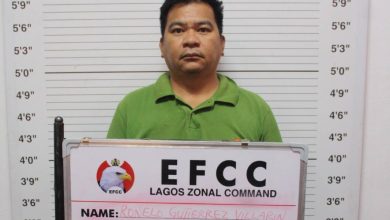Rhodes-Vivour Slams Lagos Government Over Oworonshoki Demolitions
Gbadebo Rhodes-Vivour has condemned Lagos demolitions as unfair actions hurting long-time residents.
He says development must not push poor families away or ignore legal protections for communities.
Former Labour Party governorship candidate in Lagos State, Gbadebo Rhodes-Vivour, has criticized the Lagos State Government for the ongoing demolitions in Oworonshoki, describing the operation as unplanned and inconsiderate toward residents who have lived in the community for decades.

Speaking during an interview on Arise News on Tuesday, Rhodes-Vivour accused the Babajide Sanwo-Olu administration of ignoring court orders that reportedly stopped the demolition exercise. He said the state should not expect citizens to obey laws when it fails to respect the same legal process.
According to him, many of the affected residents were removed without proper notice or any clear plan for relocation. He said only a few received compensation while the majority have been left homeless, stranded, and unsure of what to do next. He noted that demolitions should come only after proper consultations, relocation plans, and payment of compensation.
Rhodes-Vivour argued that the development approach in Lagos continues to favor wealthy investors while pushing low-income residents out of their neighborhoods. He questioned why communities that contribute to the city’s daily economic growth are displaced to make room for expensive housing projects that most citizens cannot afford.
He also raised concerns about the government’s claims of fair compensation, saying that the funds offered are not enough to secure decent housing in Lagos’ costly rental market. He stated that a payment of N2 million or N3 million would barely cover a year’s rent, leaving families uncertain about their future once the money is gone.
The former candidate urged the government to adopt an urban renewal model that does not displace the poor. He proposed that a portion of funds from luxury property developments be reinvested into affordable housing that meets the needs of low-income earners.
Rhodes-Vivour maintained that development should include everyone and not force the vulnerable to bear the consequences of regulatory lapses. He insisted that agencies responsible for allowing illegal structures should also face sanctions while communities should be protected from sudden displacement.
He said progress must be designed to improve lives rather than push hardworking residents deeper into poverty.



